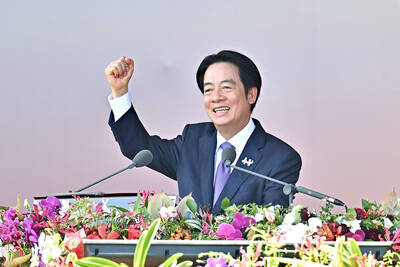With the New York Times and Rupert Murdoch poised to start charging for newspapers online, media heavyweights sparred on Thursday over whether readers will pay for news on the Web.
The Times plans to require payment for full access to NYTimes.com in early 2011 and Murdoch, who already charges for the Wall Street Journal online, has pledged to begin charging Web readers of his other News Corp newspapers.
Keynote speakers and panelists at the Bloomberg BusinessWeek Media Summit in New York differed sharply on whether Internet users would be ready to shell out money for what they have become accustomed to getting for free.
New York Times publisher Arthur Sulzberger said the time was right for his newspaper to start charging for its Web site and the move would provide a “critical” new revenue stream to add to print and online advertising revenue.
“There is an opportunity, I think, for us to gain a great deal of revenue from this paid model going forward,” Times Co president and chief executive Janet Robinson said.
Merrill Brown, chief strategist for Journalism Online, said more than 1,300 publications around the world have expressed interest in the services offered by the company founded last year to help news outlets make money on the Web.
“Every one of them is contemplating a paid strategy of one kind or another,” Brown said.
Readers will not pay for “commoditized headlines,” he said, “but they will pay for very specialized news.
“They will pay for deep coverage of their favorite sports teams, they will pay for content which only local newspapers have in their communities,” Brown said. “If [publishers] market it smartly to their most engaged users they have a chance to add at least incremental revenue.”
Brown said that although the data were “inadequate,” studies suggest that in the US, more than 20 percent of regular visitors to a particular news Web site may be willing to pay.
Andrew Keen, author of The Cult of the Amateur, a book which takes a critical look at the impact of the Internet on culture, said the newspaper industry “shot itself in the foot” by not charging on the Web in the first place but has every right to do so now.
“We do need to fight the culture of free, the culture which suggests that large media companies or for that matter small media companies don’t have the right to charge for their content,” he said.
Michael Wolff, founder of news aggregator Web site Newser and the author of a book on Murdoch, said any attempt to make readers pay online is doomed to fail.
“We’re in a moment of destruction, transformation beyond all imagination,” Wolff said.
“Newspapers are going out of business, every big city newspaper will be out of business or will be owned by a rich man hobbyist within the foreseeable future,” he said.

The Ministry of the Interior (MOI) is to tighten rules for candidates running for public office, requiring them to declare that they do not hold a Chinese household registration or passport, and that they possess no other foreign citizenship. The requirement was set out in a draft amendment to the Enforcement Rules of the Public Officials Election and Recall Act (公職人員選舉罷免法 ) released by the ministry on Thursday. Under the proposal, candidates would need to make the declaration when submitting their registration forms, which would be published in the official election bulletin. The move follows the removal of several elected officials who were

FOUR DESIGNATED AREAS: Notices were issued for live-fire exercises in waters south and northwest of Penghu, northeast of Keelung and west of Kaohsiung, they said The military is planning three major annual exercises across the army, navy and air force this month, with the navy’s “Hai Chiang” (海強, “Sea Strong”) drills running from today through Thursday, the Ministry of National Defense said yesterday. The Hai Chiang exercise, which is to take place in waters surrounding Taiwan, would feature P-3C Orion maritime patrol aircraft and S-70C anti-submarine helicopters, the ministry said, adding that the drills aim to bolster the nation’s offshore defensive capabilities. China has intensified military and psychological pressure against Taiwan, repeatedly sending warplanes and vessels into areas near the nation’s air defense identification zone and across

SENATE RECOMMENDATION: The National Defense Authorization Act encourages the US secretary of defense to invite Taiwan’s navy to participate in the exercises in Hawaii The US Senate on Thursday last week passed the National Defense Authorization Act (NDAA) for Fiscal Year 2026, which strongly encourages the US secretary of defense to invite Taiwan’s naval forces to participate in the Rim of the Pacific (RIMPAC) exercise, as well as allocating military aid of US$1 billion for Taiwan. The bill, which authorizes appropriations for the military activities of the US Department of Defense, military construction and other purposes, passed with 77 votes in support and 20 against. While the NDAA authorizes about US$925 billion of defense spending, the Central News Agency yesterday reported that an aide of US

NATIONAL DAY: The ‘Taiwan Dome’ would form the centerpiece of new efforts to bolster air defense and be modeled after Israel’s ‘Iron Dome,’ sources said President William Lai (賴清德) yesterday pledged to strengthen the nation’s air defense capabilities and build a “T-Dome” system to create a safety net against growing military threats from China. “We will accelerate our building of the T-Dome, establish a rigorous air defense system in Taiwan with multi-layered defense, high-level detection and effective interception, and weave a safety net for Taiwan to protect the lives and property of citizens,” he said in his National Day address. In his keynote address marking the Republic of China’s (ROC) 114th anniversary, Lai said the lessons of World War II have taught nations worldwide “to ensure that